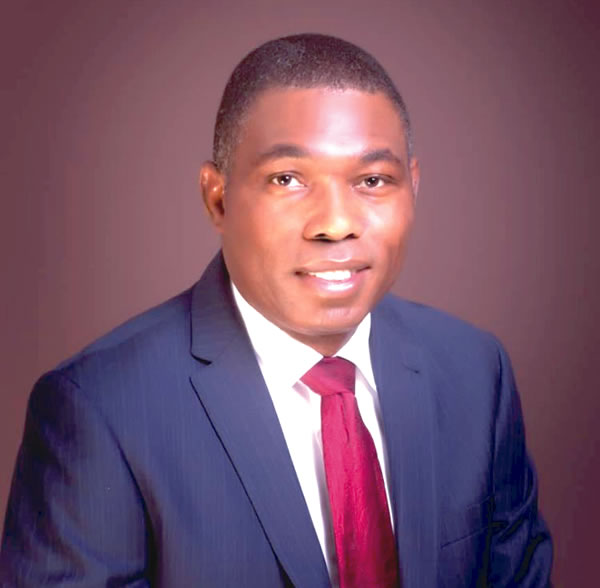The candidate of the Social Democratic Party (SDP) in the 2023 presidential election, Prince Adewole Adebayo speaks on investments on rail and maritime highways as credible intervention to reducing the pressure on petrol and more. Subair Mohammed writes.
Do you think the emergence of Dangote refinery would change the fuel scarcity and unreliable pump price dynamics?
Dangote refinery is one out of many. I have said this repeatedly that the fortune of a country cannot rest on the shoulder of an individual company. In a proper economic planning, Dangote refinery should just be one of the things the government is adding to energy supply chain. The Dangote refinery is at the corner of Lagos. There is logistics and transportation problem in the country and they have to get the product to Sokoto, Zamfara, Benue, Mubi and other states. The absence of rail line and good transport system and all of that will have impact on the supply chain.
But as a policy leader, I will make a general rule to support the establishment of refineries in Nigeria using clearly laid down policies that anybody whoever wants to go into that industry would have equal rights like any other person.
From the point of view of the law, Dangote refinery does not exist. From the regulatory position, Dangote refinery only had permit to construct, and I am not sure they have gone back to the regulators to say that they have finished constructing, come and inspect us as we now need a licence to operate. So, any celebration that was done during the commissioning of the refinery was political. It was done to give credence to the government that they were doing some investments. But in terms of operational readiness, you have to give it its own time, unconnected to political agenda. I believe they still have several months before they can come out of the woods and say that they are operational.
Importantly, the question that should be on the lips of Nigerians at this time should be centred on the state of the four refineries owned by the public. Do you that three out of the four refineries have been undergoing turnaround maintenance for many years since I was a young boy? It may be possible that Port Harcourt or Warri refineries may even have more prospect of coming on stream before any other private refinery. The energy mix should be done in such a way that the fortune of the whole country is not dependent on what a private entity does. The only role of the government is to make his policy stable so that many players can come into the sector. We don’t have to depend on a private refinery.
Stakeholders have suggested concessioning of the four refineries to private interests for them to be effectively optimised, do you support this notion?
You can concession the operation and maintenance. But my own political philosophy does not permit me to allow you to wholesale what belongs to the public to private people. With privatisation, they do asset stripping and make money out of the place. They take everything out of it and abandon it. That is not good. We need to change that model. From my study of oil privatisation efforts, many of the people they sold these assets to do not have as much experience as the public sector they took the assets from. That is why many of the electricity DisCos can’t perform optimally. That’s why many plants that were privatised sold the assets and run away with the money. They could not continue or improve upon what they met on ground.
It is said that the landing cost of petroleum is about N1300 yet the government said subsidy regime is over. One then wonders why the landing cost price cannot be left to determine the actual price in the market or what do you think?
This is a structural problem. It is a two-dimensional problems and a one dimensional analysis will not get it. When you look at the price of petrol, you are looking at two problems. One is the logistics cost of landing one litre and the arbitrage in the pricing of the naira. That’s why the price went haywire. The government created structural problems in that all they needed to do was to focus on how to get the supply. And the two ways to get the supply is to either import which is what they are doing, buy import in the most efficient and transparent way so that the corruption associated with importation and over-invoicing will be a thing of the past.
To say that we shall import for the next 24/48 months and stop importation six months after the refineries have been operational show they can’t supply us. But to try to control the price on the streets when the demand is growing and the supply is shrinking, you are going to be disappointing Nigerians. Subsidy cannot go away but subsidy can be hiding from one subhead to another. What the present government has done is to move the subsidy finance outside the budget so that they will not appropriate money for it again in the budget but the dividends which the NNPC is supposed to pay into the federation account will be used to fund it. If you don’t subsidise, the economy will collapse. I am not one of those who support the removal of subsidy.
So, the government must continue with fuel subsidy, right?
Yes, they must continue to subsidise because of the fact that they have created a structural problem. The government has refused to take a large chunk of the population away from the use of petrol to run their businesses and run their cars. We didn’t do investment in railways and maritime highways. We didn’t do investment in transportation generally using CNG so that majority of the people will have no reason to drive their vehicles. The government also need to make sure that the refineries are not dead woods. They are not just call centres that are not performing. They need to make sure that the turnaround maintenance is done effectively and the racket created around it where every government comes and spends money on it must come to an end.
As a petroleum industry adviser, the problem I see in this is that the cost of the people who built refineries is international and the currency is weak. So they are trying to work towards a minimum price guaranteed before they can sell in our domestic market. This is where the last administration of President Muhammadu Buhari tried to manage the situation whereby they will merge the market to the industries. So they will prep the market by raising the price so that when they start producing, the price would have been high enough in such a way that government does not have to do domestic subsidies.
Even if you stop importing, any private sector that is going to supply refined products into Nigerian market would still have to bear the international cost and if international cost is above the same price, somebody had to make the intervention, unless they work in such a way that the export price is higher than the local price and then bridge it by some incentives. But the key to having a reliable petroleum price is to have stability of the naira and supply. This can be done if the government is efficient.
The pump price of petrol in neighbouring countries is said to be cheaper compared to what is sold here. Some have argued that with this state of affairs Nigeria is indirectly subsidizing these countries, is this the case?
This line of argument does not make sense to me at all because the entire petrol consumption in our neighbouring countries is not up to that of Ibadan, the Oyo State capital alone. Technically speaking, 15 per cent export should not break the bank for you. Secondly, petrol is so feasible that unless you let them go, they cannot go. Of all borders in Nigeria, I know at least 21 out of them. How many of the borders are motor-able that you can carry petrol tanker and travel at 80 kilometres per hour? Is it towards Garuwa or Idi Iroko? You can mount your borders through aerial surveillance. You can tag every tanker in Nigeria to know which tanker travel to where. Government is only using that as an excuse to raise the petrol price because it does not want to have a firm conversation with the people to expose its level of inefficiency. They need to be serious about it. After all, the Minister of petroleum is the president. He cannot say he is sleeping on duty. We should be more serious than this. There is no reason to make that kind of argument because it is laughable with all due respect.
The FG is striving to have more vehicular movement on CNG to reduce the pressure on petrol. Now between the CNG and petrol, how do we strike a balance?
They can implement the country’s national gas policy. There are all kinds of ways by which we can utilise gas, liquefied natural gas and all that. They are all there. What government needs to do is to create a gas market that has incentive. They need to have converters put on cars which they have been mouthing for a long time. They can first make it an automotive policy that every vehicle in Nigeria must be capable of using both petroleum and gas alternately. If you go to Kenya, Tanzania and many places, even Ghana they have. Even in Nigeria, we have it at microscopic level.
You can have these plants that will generate employment. But you still have to supply the gas and all these gas fields that we have, the pipelines, sometimes are shut down. But if we take care of that sector effectively, we can use CNG and have a three-year plan where we have at least 50 per cent of construction of CNG.
That will reduce the cost of reliance on petroleum. We also need to invest in public transportation. Nigeria has not reached a level where every man and woman would have to have a car. We can set up plants whether in partnership with Brazil or Asian countries. By the time you produce 50,000 or 100,000 public buses that are on CNG, the percentage of reliance on petrol would drop. But there must be a national programme that is devoted to that, a programme that is not political or palliative in nature especially at campaign seasons. By that, we would have reduced petrol consumption by 75 per cent.
ALSO READ THESE TOP STORIES FROM TheWitness

